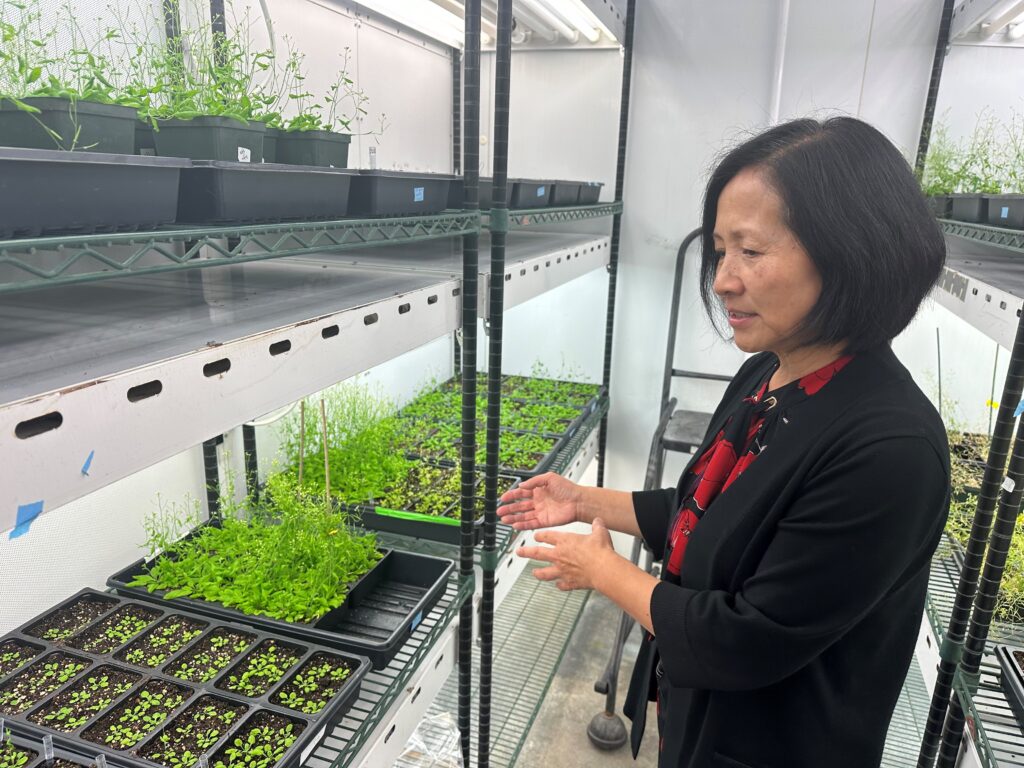Iowa State University professor Michelle Guo is making significant strides in agricultural research by focusing on a particular plant gene known as Feronia. This gene plays a crucial role in aiding plants’ resilience and adaptability to environmental stressors, which is increasingly important as climate change presents new challenges to crop production. Guo, an assistant professor in genetics, development, and cell biology, has dedicated nearly two decades to studying Feronia’s multiple functions within plants. Recently, her efforts received a substantial boost in the form of a nearly $2 million grant from the National Institute of General Medical Sciences. This funding will enable her and her team to explore the gene’s workings at a cellular level, aiming to manipulate its functions to improve crop resilience.
Guo’s research is particularly focused on understanding how the Feronia gene contributes to plants’ ability to grow and withstand various stressors, such as salinity, which is critical for agricultural productivity and food security. For instance, disrupting this gene leads to the development of “dwarf plants” that are more vulnerable to environmental challenges. By investigating how this gene operates in different plant cells, Guo aims to gain insights that could lead to the genetic modifications necessary for developing more resilient crops. She emphasizes that Feronia acts as a window into understanding the balance between plant growth and stress response, facilitating the design of improved breeding schemes.
The grant Guo received is significant as it allows her the flexibility to explore various research avenues rather than restricting her to a specific project. This kind of funding is vital for researchers, as it provides them with the freedom to pivot their efforts based on emerging insights and discoveries. Guo noted the positive implications of this grant not only for her research but also for her team of students and postdoctoral researchers who can experiment with their ideas and take on exciting challenges in plant biology.
A unique aspect of Guo’s approach is the utilization of single-cell RNA sequencing technology. Traditionally, researchers have lumped plant tissues together for analysis, which often obscures valuable information about individual cell functions. By focusing on the roots of the model plant Arabidopsis thaliana, Guo’s team plans to explore how partial disruptions of the Feronia gene affect plant health and development across various cell types. This method opens new avenues for understanding the gene’s diverse roles in different plant compartments, ultimately potentially engineering plants to thrive in harsher conditions.
In addition to her research, Guo is committed to enhancing outreach and engagement with students and educators. With the grant funding, she plans to invite undergraduates and high school science teachers to her lab, aiming to inspire the next generation of scientists and facilitate the exchange of fresh ideas. Past experiences have shown her that involving younger individuals in research can spark valuable questions and insights that seasoned researchers may overlook. Furthermore, she is developing a course targeting freshmen that will introduce them to essential research methods and laboratory skills.
Finally, as climate change continues to pose a significant threat to food security, Guo’s research aims at facilitating more rapid advancements in plant resilience compared to natural evolutionary processes. Recognizing the urgency of developing crops that can produce high yields in less-than-ideal conditions, Guo is passionate about ensuring that her research not only contributes to scientific knowledge but also supports young scientists’ career development. The core ambition of her work is to bridge the gap between understanding plant biology and practical applications that can help mitigate the impacts of climate fluctuations on food production.

